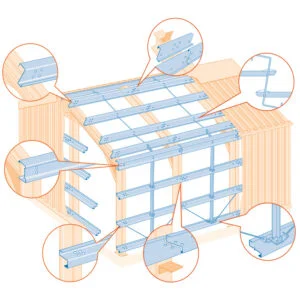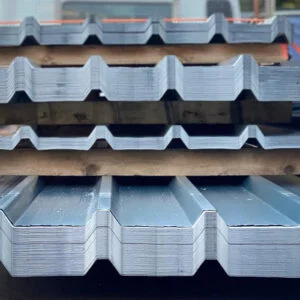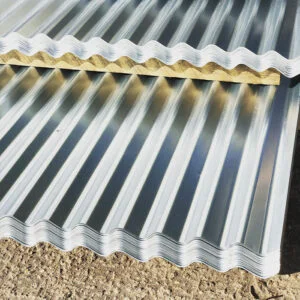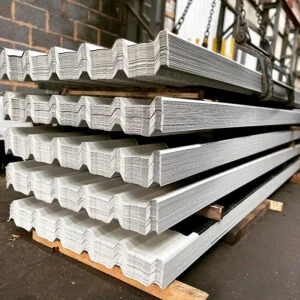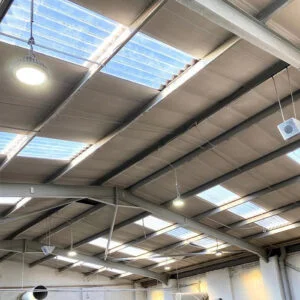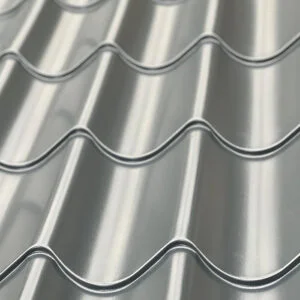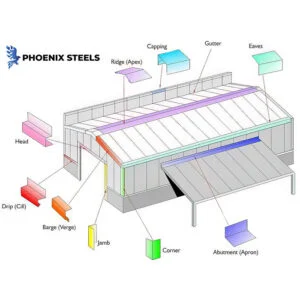Roofing sheets Merseyside
Roofing sheets Merseyside, often simply referred to as "roof sheets," are essential building materials used to cover and protect the roofs of various structures, including residential, commercial, and industrial buildings. They come in a variety of materials, profiles, and styles to suit different construction needs and preferences. Here's an overview of roofing sheets:
Materials: Roofing sheets can be made from different materials, each offering its own set of advantages and characteristics:
- 1. Metal Sheets: Metal roofing sheets can be delivered directly to your door in Merseyside, are popular due to their durability, longevity, and resistance to the elements. Common materials include steel, aluminum, copper, and zinc.
- 2. Fiberglass/GRP Sheets: These sheets are made of glass-reinforced plastic (GRP) and are lightweight, durable, and resistant to corrosion. They often provide translucent roofing to allow natural light into a structure.
- 3. Asphalt Shingles: Typically used for residential roofing, asphalt shingles are affordable and come in a variety of colours and styles. They are easy to install and provide decent protection.
- 4. Concrete or Clay Tiles: Roof tiles made from concrete or clay are known for their aesthetic appeal, longevity, and resistance to fire. They are commonly used in residential and commercial buildings.
- 5. Polycarbonate Sheets: Polycarbonate roofing sheets Merseyside are transparent or translucent and are popular for conservatories, skylights, and covered walkways.
- 6. Bitumen Roofing Sheets: Bitumen sheets are often used for flat roofs, especially in commercial and industrial applications. They are known for their waterproofing properties.
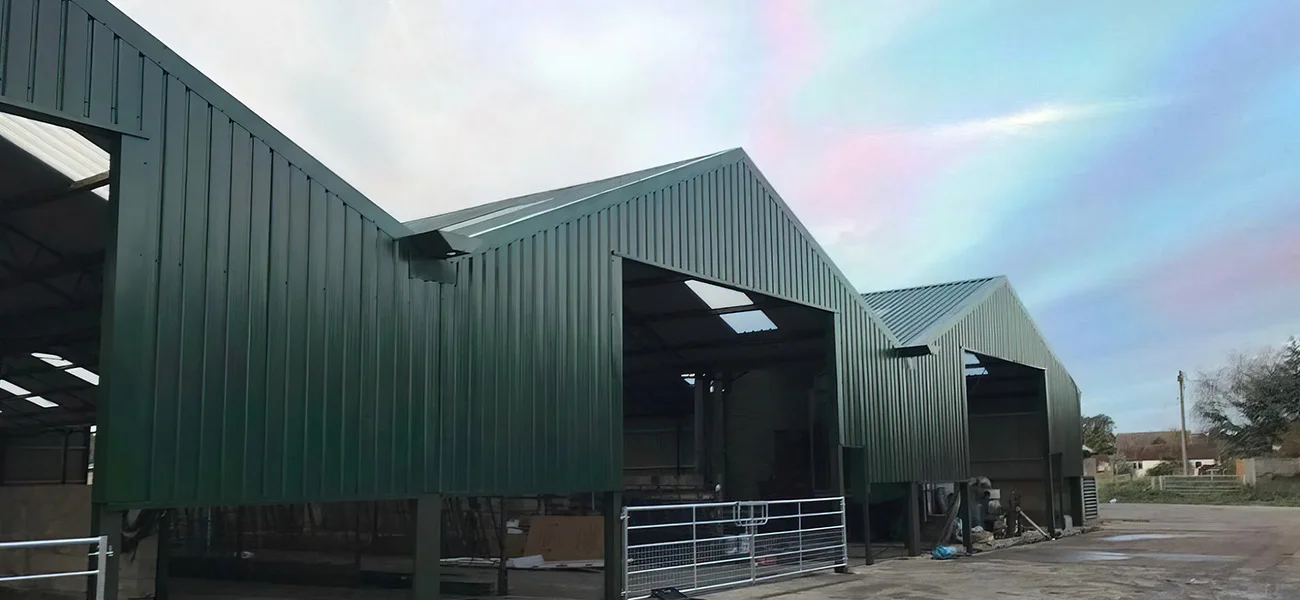
Profiles and Styles: Roofing sheets Merseyside come in various profiles or styles, depending on their intended use and aesthetic preferences. Common profiles include:
- 1.Corrugated: These sheets have a distinctive wavy or corrugated pattern and are often used in agricultural and industrial buildings.
- 2. Box Profile: Box profile sheets have a box-like or trapezoidal profile and are known for their strength and water-shedding capabilities.
- 3. Tile Effect: Tile effect roofing sheets mimic the appearance of traditional roof tiles while offering the durability of metal or other materials.
- 4. Standing Seam: Standing seam roofing features raised seams that run vertically along the roof. They are popular in residential and commercial applications.
- 5. Shingles: Asphalt shingles are designed to look like traditional wooden or slate shingles and are widely used in residential roofing.
- 6. Flat Sheets: Flat roofing sheets are used in flat or low-slope roof designs and are often made from materials like bitumen or rubber.
Uses: Roofing sheets Merseyside are used in various construction applications, including:
- 1. Residential Roofing
- 2. Commercial and Industrial Roofing
- 3. Agricultural Buildings
- 4. Warehouses and Factories
- 5. Greenhouses and Conservatories
- 6. Carports and Garages
- 7. Covered Walkways and Awnings
When selecting roofing sheets in Merseyside, it's important to consider factors such as the local climate, building regulations, budget, and the specific requirements of your project. Proper installation by experienced roofing professionals is essential to ensure the roofing material performs effectively and provides the desired protection for your structure.
Merseyside and Liverpool
Merseyside, a metropolitan county in North West England, is renowned for its rich cultural history, dynamic economy, and distinctive identity. The county, which includes Liverpool, Wirral, Sefton, Knowsley, and St Helens, has been shaped by its maritime heritage, industrial development, and vibrant arts scene. Liverpool, the largest city in Merseyside, stands out as a global cultural icon, famed for its music, sports, and architecture.
Merseyside: A Maritime and Industrial Legacy
Merseyside owes much of its growth to its position along the River Mersey, which has been a lifeline for trade and transport. During the 18th and 19th centuries, the region became a major port, facilitating commerce with the Americas and beyond. This economic boom fostered the growth of industries, particularly shipbuilding, textiles, and chemicals.
The county also played a pivotal role in the Industrial Revolution, becoming a hub of innovation and labor. Towns like St Helens were prominent in the glass and coal industries, while the Wirral Peninsula developed as a center for shipbuilding and engineering.
Liverpool: A Global City of Culture
Liverpool, the beating heart of Merseyside, is internationally recognized for its cultural and historical significance. The city’s maritime heritage earned it a UNESCO World Heritage designation (2004–2021) for the historic waterfront, which includes iconic landmarks such as the Royal Liver Building, the Cunard Building, and the Port of Liverpool Building, collectively known as the "Three Graces."
Liverpool’s most enduring claim to fame is its music scene, epitomized by The Beatles. Known as the birthplace of the Fab Four, the city celebrates their legacy with attractions like The Beatles Story museum, the Cavern Club, and the annual International Beatleweek Festival. Beyond The Beatles, Liverpool continues to be a hub for live music, nurturing diverse genres and emerging artists.Cultural and Artistic Landscape
Liverpool boasts a thriving cultural scene, with institutions such as Tate Liverpool, the Walker Art Gallery, and the Museum of Liverpool. The city is also known for its theater productions, with the Liverpool Playhouse and the Everyman Theatre hosting acclaimed performances.
Merseyside’s residents are passionate about sports, particularly football. Liverpool FC and Everton FC, two of the Premier League’s most storied clubs, are based in the city, and their rivalry is a defining feature of local culture. Rugby league also has a strong following, especially in St Helens, home to the successful St Helens R.F.C.
Merseyside Beyond Liverpool
Outside Liverpool, Merseyside offers a variety of attractions and landscapes. The Wirral Peninsula provides picturesque coastal walks and historic villages, while Southport in Sefton is known for its Victorian charm, sandy beaches, and the Southport Flower Show. Knowsley Safari and the Dream sculpture in St Helens showcase the county’s commitment to both conservation and public art.
A Modern Renaissance
Today, Merseyside thrives as a diverse and forward-looking region. Liverpool’s economy is bolstered by sectors such as tourism, digital industries, and education, with major institutions like the University of Liverpool and Liverpool John Moores University playing key roles. The city’s regeneration efforts, exemplified by developments like Liverpool ONE, have revitalized its urban landscape.
Merseyside, with Liverpool at its core, is a region where history and modernity coexist, offering a dynamic blend of heritage, culture, and opportunity.


